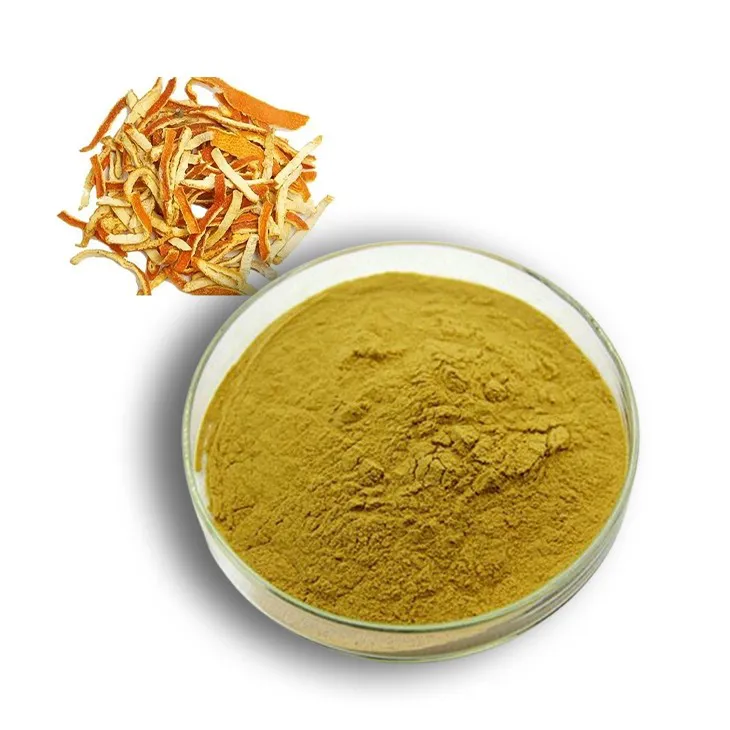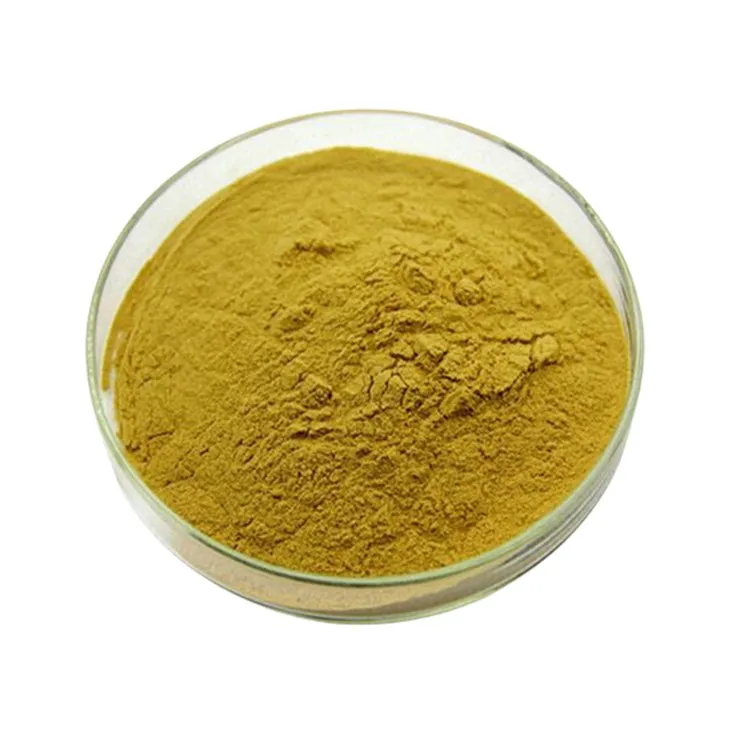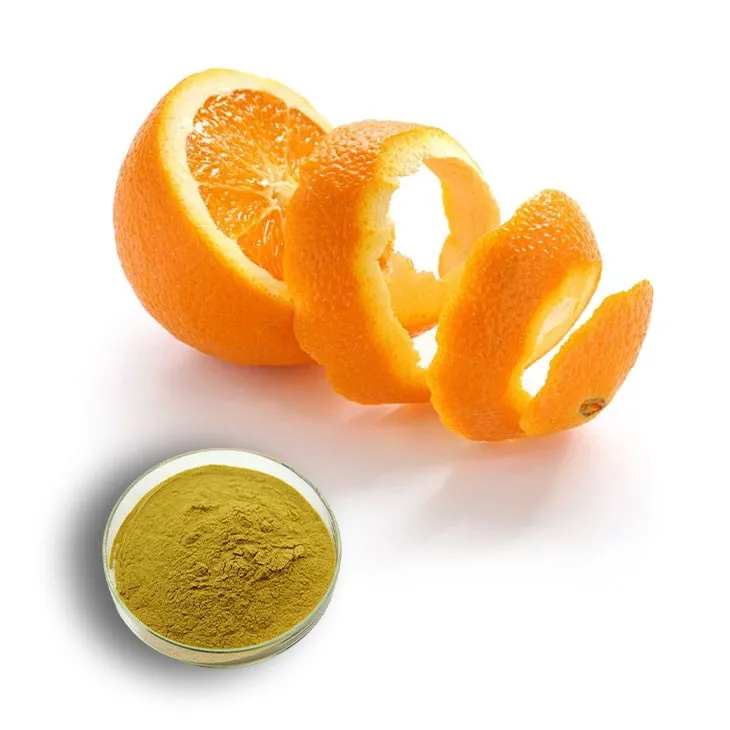- 0086-571-85302990
- sales@greenskybio.com
Diosmin and Hesperidin: Who Should Avoid These Supplements?
2025-10-27

Diosmin and Hesperidin are natural flavonoids primarily found in citrus fruits. As a combination, they are frequently used in dietary supplements to improve vascular health, particularly for their venotonic properties which enhance venous tone and circulation. Diosmin and Hesperidin are commonly recommended for conditions such as chronic venous insufficiency, lymphedema, hemorrhoids, and varicose veins. Despite their natural origin and recognized benefits, these supplements are not suitable for everyone. This article delves into the circumstances and health conditions under which Diosmin and Hesperidin should be avoided or used with caution.
Overview of Diosmin and Hesperidin
These two flavonoids are bioactive compounds that influence vascular health through several mechanisms:
Vasoprotective Effects: Diosmin and hesperidin strengthen capillaries, reduce permeability, and help improve microcirculation.
Anti-inflammatory Properties: They reduce inflammation associated with venous disorders, providing relief from swelling and pain.
Antioxidant Activity: Both compounds offer antioxidant benefits by neutralizing free radicals, thereby protecting vascular tissues from oxidative stress.
Use in Therapeutics: Commonly used in the management of venous disorders, these compounds also appear in treatments aimed at reducing edema, controlling bleeding, and managing leg ulcers.

Who Should Refrain from Using Diosmin and Hesperidin?
While generally well tolerated, specific populations should avoid using diosmin and hesperidin or approach their use with caution:
Pregnant and Breastfeeding Women
Lack of Sufficient Research: Studies on the safety of diosmin and hesperidin in pregnant or breastfeeding women are limited. Consequently, it is generally recommended that these groups avoid using the supplements due to unknown potential effects on fetal development or milk production.
Individuals with Known Allergies
Citrus Allergies: As diosmin and hesperidin are derived from citrus fruits, individuals with citrus allergies might experience allergic reactions ranging from mild skin rashes to more severe symptoms. Such individuals should consult healthcare providers before using products containing these compounds.
Patients on Anticoagulant Therapy
Potential Interaction: Diosmin and hesperidin may affect blood clotting. Patients on anticoagulants or blood thinners like warfarin should exercise caution, as this combination could exacerbate the risk of bleeding. Professional medical advice is crucial in these cases to adjust dosages or avoid use altogether.
Individuals Undergoing Surgery
Increased Bleeding Risk: The supplements’ impact on vascular function might elevate bleeding risk during and after surgery. Therefore, individuals scheduled for surgery are typically advised to discontinue use at least two weeks prior to the procedure to minimize complications.
Those with Blood Disorders
Bleeding Disorders: Patients with blood clotting disorders, including hemophilia or thrombocytopenia, should avoid diosmin and hesperidin due to potential exacerbation of bleeding tendencies.
Severe Liver or Kidney Disease
Metabolic Concerns: The liver and kidneys metabolize and excrete flavonoid compounds. Individuals with severe hepatic or renal impairment might accumulate these compounds in the body, leading to potential toxicity. Consulting with healthcare providers ensures appropriate assessment and supervision.

Potential Side Effects and Interactions
While diosmin and hesperidin are deemed safe for most individuals, they can cause side effects and interactions that warrant attention:
Gastrointestinal Discomfort: Some people may experience nausea, diarrhea, or stomach cramps. These symptoms are usually mild and may be minimized by taking supplements with food.
Headaches: Mild headaches have been reported occasionally, likely due to vascular changes in response to the supplements.
Interactions with Other Medications: Aside from anticoagulants, there is potential for interactions with nonsteroidal anti-inflammatory drugs (NSAIDs), aspirin, and supplements affecting blood pressure. Inclusive healthcare provider consultation is key when combining these supplements with other treatments.

Important Considerations for Safely Using Diosmin and Hesperidin
For those not contraindicated, several steps can maximize the safety and effectiveness of diosmin and hesperidin supplementation:
Consult Healthcare Professionals: Prior to starting any new supplement regimen, engaging with healthcare providers helps verify safety, evaluate potential interactions with existing medications, and determine appropriate dosages.
Adhere to Recommended Dosages: Adhering to prescribed dosages mitigates the risk of side effects. Overconsumption does not necessarily heighten therapeutic benefits and may increase unwanted outcomes.
Monitor and Report Side Effects: Consistent monitoring for any adverse reactions ensures timely consultation with healthcare professionals, especially if unexpected symptoms emerge.
Consider Lifestyle Modifications for Venous Health: In addition to supplementation, adopting lifestyle changes—such as regular exercise, maintaining a healthy weight, and elevating legs—supports overall venous health and amplifies the supplements’ benefits.

Conclusion
Diosmin and hesperidin offer well-documented returns in managing various venous disorders and improving vascular health. However, recognizing the contexts in which these supplements may be unsuitable is crucial to ensuring safety and effectiveness. Individuals with specific conditions such as allergies, pregnancy, or those on anticoagulant therapy should carefully deliberate before introducing these supplements in their health regime. Additionally, engaging with healthcare providers ensures informed decisions based on personal health profiles, safeguarding against potential risks while maximizing the benefits obtained from supplement use. As research continues to expand on their effects and applications, diosmin and hesperidin remain significant components of natural medicine in promoting vascular wellness.
, a great article source where you can learn about Supplements and their health benefits, you also can get the latest food Supplements. Green Sky Bio provides the best extracts and supplements. It is a Chinese self-developed brand that is trustworthy! Welcome to email us to inquire about our products.
- ▶ Hesperidin
- ▶ Citrus Bioflavonoids
- ▶ Plant Extract
- ▶ lycopene
- ▶ Diosmin
- ▶ Grape seed extract
- ▶ Sea buckthorn Juice Powder
- ▶ Fruit Juice Powder
- ▶ Hops Extract
- ▶ Artichoke Extract
- ▶ Mushroom extract
- ▶ Astaxanthin
- ▶ Green Tea Extract
- ▶ Curcumin
- ▶ Horse Chestnut Extract
- ▶ Other Product
- ▶ Boswellia Serrata Extract
- ▶ Resveratrol
- ▶ Marigold Extract
- ▶ Grape Leaf Extract
- ▶ New Product
- ▶ Aminolevulinic acid
- ▶ Cranberry Extract
- ▶ Red Yeast Rice
- ▶ Red Wine Extract
-
Lycopene
2025-10-27
-
Fig Extract
2025-10-27
-
Konjac Powder
2025-10-27
-
Diosmin
2025-10-27
-
Baicalin
2025-10-27
-
Boswellia Serrata Extract
2025-10-27
-
American Ginseng Root Extract
2025-10-27
-
Green Tea Extract
2025-10-27
-
Wheat Germ Extract
2025-10-27
-
Feverfew Extract
2025-10-27





















